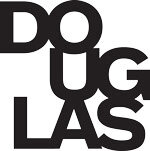Academically able individuals with ASD can attend mainstream college and university program in areas that interest them. Sometimes they require support from the on campus disability office, a service provided by all post-secondary institutions in B.C. Individuals with ASD who require more specialized training have a variety of post-secondary opportunities. ACT provides a listing of programs relevant to those with autism and diverse needs.
Autism Mentorship Initiative (AMI)
The SFU Centre for Students with Disabilities (CSD), in collaboration with Dr. Grace Iarocci (Autism and Developmental Disorders Lab, Department of Psychology) and Dr. Elina Birmingham (Social Attention Research Group, Faculty of Education) are implementing a specialized mentorship program, entitled the Autism Mentorship Initiative (AMI). This program is designed to more effectively support and engage SFU students with ASD into university life and to increase their potential for academic retention and success. Participants have the opportunity to work one-on-one with a trained student mentor for up to 2 hours per week throughout each semester.
To learn more or to participate, please visit the AMI website.
The BC Ministry of Advanced Education and Adult Education

The Ministry of Advanced Education maintains a comprehensive website listing adult and diverse needs programs and resources in BC, available at https://www2.gov.bc.ca/gov/content/education-training/adult-education/adult-special-education.
Cooperative Entrepreneur Training Program (CETP)
Create a business plan, pursue start-up funding and access a support network to grow a thriving business. Put your business into practice with faculty support and community mentorship.
Delivery
Instruction, community interaction and mentorship delivered online.
Duration
30 weeks, September to MayApplication deadline is June 20, 2024
For more information: https://acp.viu.ca/co-operative-entrepreneur-training-program
Education and Employment Access

Education and Employment Access (EEA) is a full time, 8 month program operating within the School of Access and Academic Preparation. Students with learning difficulties or other barriers to reaching their goals will be offered specific support in their transition to post-secondary education and employment.
The focus will be on developing the skills and strategies necessary to be an independent learner in a university setting. Students will finish with a professional portfolio, certifications, strategies for success in first year courses and current experience in the sector of their choice.
Assistive Technology – BC

Mandated to “provide assistive technology resources to persons with disabilities and members of the environments in which they study or work in order to create equitable and useable environments. Technology resources include technology assessment, consultation, the provision of assistive technology, training on the use of the technology, repair and trouble shooting, support and tip sheets”. The AT-BC website can be found at www.at-bc.ca.
NEADS – National Educational Association of Disabled Students

The National Educational Association of Disabled Students is a consumer organization, with a mandate to encourage the self-empowerment of post-secondary students with disabilities. NEADS advocates for increased accessibility at all levels so that disabled students may gain equal access to college or university education, which is their right. The Association provides information on services and programs for students with disabilities nationwide, publishes a regular newsletter, and conducts research on issues of importance to its members. Members include disabled students, educators, organizations and professional service providers.
Consumer and Job Preparation

The Consumer and Job Preparation program (CJP) “is designed to assist students with intellectual disabilities to facilitate essential skills knowledge and on the job work training to develop successful workplace preparatory skills, habits and attitudes. Students identify their interests and develop skills through class participation and three 4-6 week placements.”
Transitions Program
The Transitions Program “is a part-time, 16-week program for students with diverse needs and/or learning difficulties in Grade 12 or Grade 12+. The program is designed to assist students in making successful exits from secondary school into training or workplace settings.
Students attend the program at the Coquitlam Campus for half days and return to their high school for the remainder of the day. The program is comprised of both classroom work and fieldwork.”
Basic Occupational Education
Douglas College’s Basic Occupational Education program teaches industry-specific skills in these sectors: Food Services, Electronic and General Assembly, and Retail and Business Services
Gain knowledge of job-related information, earn industry-relevant skills and certificates and improve your overall customer service and communication skills in a supportive classroom environment. This self-paced program averages 10 months in length and you will have the opportunity to experience practicum placements in the field.

The College of New Caledonia
The Job Education and Training programs offered by the College of New Caledonia.

Access Program for People with Disabilites
The goal of the Access Programs is to provide post-secondary education for adults with various disabilities. These programs will prepare studens for employment, volunteer work and further education.

Work BC’s Employment Program of BC
The Employment Program of BC (EPBC) is a new program that will replace the current range of employment supports and services across the province. The new WorkBC Employment Services Centres have been operational since April 2, 2012 providing services to job seekers and employers in various locations around the province.
Work BC also has resources to assist people with a disability develop skills, plan a job search, and find tools to support the individual at work: Work BC Resources for people with disabilities.
Workplace Essential Skills and Training (WEST)
The Workplace Essential Skills and Training (WEST) program at VIU Cowichan is recruiting on an ongoing basis.
WEST is a two year full-time workplace skills and experience program for neurodivergent adults (17+) with diverse needs, developmental disabilities or learning disabilities—examples include folks with FASD, ADHD, dyslexia, Autistic individuals, people with cognitive disabilities, brain injury, anxiety, etc.
We are looking for students who:
- need some extra supports in learning are interested in working (part-time/volunteerism definitely count!)
- can work or study independently without a 1:1 aid
- are motivated to go to university and collaborate with their classmates/instructors
There is a grant available that fully covers tuition and books for most students.
If you are interested, please contact: Jo Lemay, [email protected], WEST Program Coordinator/Instructor
https://www.viu.ca/programs/academic-career-preparation/workplace-essential-skills-and-training
Vancouver Island University, Cowichan Campus, 2011 University Way, Duncan, BC